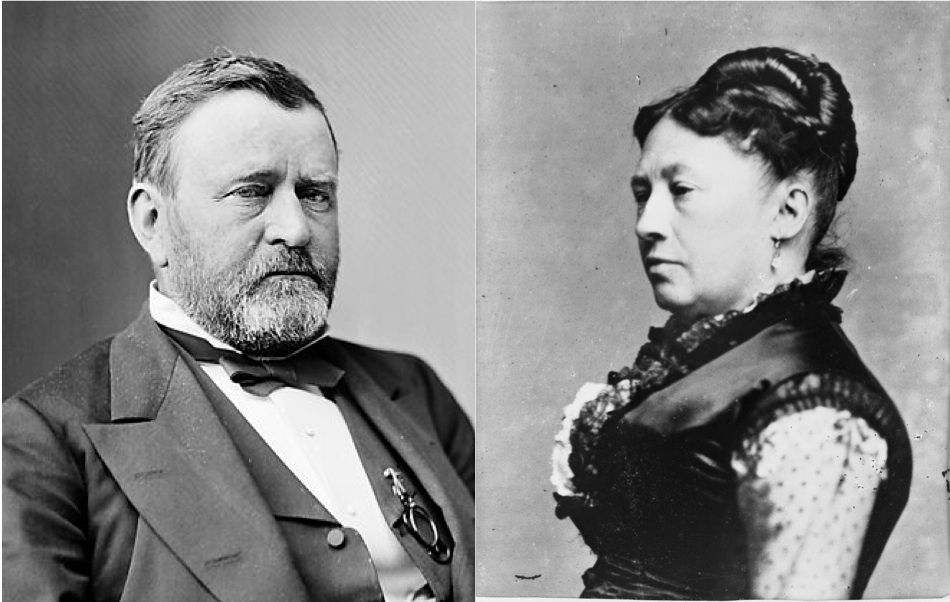Love Conquers All
- Jessica Dean
- Feb 13, 2024
- 4 min read
Love can be challenging even in the most ideal circumstances. Factor in war—with its fear, uncertainty, isolation and anguish—and the three love stories that survived—and thrived—are even more meaningful.

Ulysses S. and Julia Grant
Ulysses S. Grant and Julia Dent first met in 1844 while Grant was visiting the family of his West Point roommate in St. Louis. They were instantly attracted to one another, and rather quickly, she wore his class ring as an engagement ring. But war came first. Grant was a soldier in the Mexican American War, and he corresponded with his future bride through letters. It was four long years before he would return; the couple was married in St. Louis in 1848.
According to an article featured on the U.S. Grant Cottage State Historic Site’s [www.grantcottage.org], “In some ways Ulysses and Julia were like Romeo and Juliet.” Grant grew up with antislavery parents in southern Ohio, while Julia grew up on a plantation with slaves near St. Louis. “Neither of their fathers were keen on the match and for their entire lives there would remain some tension between the families.”
By the time of the Civil War, the couple had four children. “As the Civil War raged the rising military star would not forget his wife and children but sent for them to be with him whenever possible. Ulysses strained to be the consummate family man and was a devoted husband and father. Julia would be his confidant and supporter through the trials of war,” according to the article.
That devotion was reciprocated by Dent throughout their four decades together, from the Mexican American War to the Civil War and, ultimately, the White House. Grant died in 1885 and Julia in 1902. The couple is interred in matching red granite sarcophagi in New York City.
Years after her husband’s death, Julia shared: “For nearly thirty-seven years, I, his wife, rested and was warmed in the sunlight of his loyal love … and now, even though his beautiful life has gone out, it is as when some far-off planet disappears from the heavens; the light of his glorious fame still reaches out to me, falls upon me, and warms me.”

Keith and Linda Blalock
Would you put yourself in the midst of war, risking life and limb, for your spouse? For North Carolina woman Linda Blalock, the thought of being separated from her husband Keith was too much to bear— so she secretly joined the army to be by his side.
As Union supporters, Keith worried he would be recruited into the Confederate army, until he realized it could be a way for him to get to Virginia and defect to the Union army. Little did he know that his wife Linda had cut her hair, dressed in his clothing and joined the army as Keith’s brother, “Sam.”
She reunited with Keith and wasn’t found out until she was being treated for a shot to the shoulder. After she recovered from her injury, she was discharged.
But Keith had clever plans of his own. He snuck into the forest, stripped down and rolled around in poison ivy. He then convinced doctors that he had an incurable disease—and was discharged. Reunited, the Blalocks were able to escape to the Appalachian Mountains and served as Union raiders for the remainder of the war.

Stonewall and Anna Jackson
Mary Anna Morrison first met her future husband Thomas “Stonewall” Jackson while visiting her sister in Lexington, Virginia. In 1857, the couple wed and lived happily devoted to one another until the Civil War disrupted the nation. Jackson was chosen to lead the cadets at Virigina Military Institute. He wrote to his wife often, such as this letter in September 1892 (from Life and Letters of General Thomas J. Jackson):
“Darling, my heart turns to you with a love so great that pain flows in its wake. You cannot understand this, my beautiful, bright-eyed, sunny-hearted princess. Your face is the sweetest face in all the world, mirroring, as it does, all that is pure and unselfish, and I must not cast a shadow over it by the fears that come to me, in spite of myself. No, a soldier should not know fear of any kind. I must fight and plan and hope, and you must pray. Pray for a realization of all our beautiful dreams, sitting beside our own hearthstone in our own home – you and I, you my goddess of devotion, and I your devoted slave. May God in his mercy spare my life and make it worthy of you!
Your soldier”
The couple had one daughter, Julia, whom Jackson did not see until April 1863, when she was five months old. During the Battle of Chancellorsville the following month, Jackson was struck by friendly fire. Word got to Anna, and she arrived with Julia shortly after. Although efforts were made to save his life, Jackson died eight days after being wounded. Anna never remarried; she was known as the “Widow of the Confederacy, attending Confederate veteran events and supporting the United Daughters of the Confederacy later in life. She died at age 83 in March 1915.
